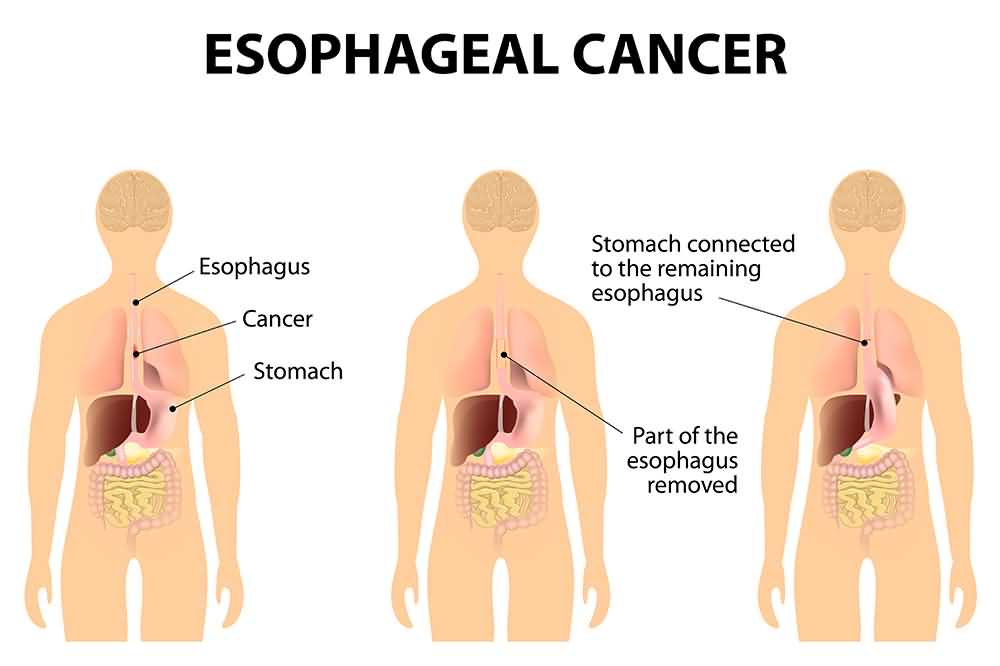Esophageal Cancer Surgery in Lebanon
Search and Compare the Best Clinics and Doctors at the Lowest Prices for Esophageal Cancer Surgery in Lebanon

Find the best clinics for Esophageal Cancer Surgery in Lebanon
No clinics available
India offers the best prices Worldwide
Price: $ 4,140

- Home
- Lebanon
WHY US?
At Medijump, we're making medical easy. You can search, compare, discuss, and book your medical all in one place. We open the door to the best medical providers worldwide, saving you time and energy along the way, and it's all for FREE, no hidden fees, and no price markups guaranteed. So what are you waiting for?

Free

Best Price

Widest Selection

Risk-Free
What you need to know about Esophageal Cancer Surgery in Lebanon

Esophageal cancer occurs anywhere along the esophagus (the long and hollow tube that runs from the throat to the stomach). Surgery for esophageal cancer is often used to try to remove cancer and some of the normal tissue that surrounds it for some earlier stage cancers. In some cases, the surgery may be combined with other types of treatment, such as radiation therapy and/or chemotherapy.
What does a Esophageal Cancer Surgery Procedure Involve?
Esophageal cancer surgery is performed under general anesthesia. The surgery is done using the standard open technique in which your surgeon makes one large incision in the chest or abdomen, or minimally invasive where your surgeon makes several small incisions. During the surgery, your surgeon will try to remove the tumor and some healthy tissue that surrounds it or removes some or most of the esophagus (esophagectomy). In some cases, a small upper portion of your stomach is removed as well (esophagogastrectomy).
How Long Should I Stay in Lebanon for a Esophageal Cancer Surgery Procedure?
You will be staying 7 to 10 days in the hospital following the surgery, but plan to stay in Lebanon for 10 to 14 more days after you are discharged from the hospital. During your stay in the country, you will be under a close monitor of your surgeon. Stitches are usually removed within 14 days.
What's the Recovery Time for Esophageal Cancer Surgery Procedures in Lebanon?
Esophageal cancer surgery is not a simple procedure, therefore, it may require long recovery time. You should not do any strenuous activity (including intense exercise and heavy lifting) for about 8 weeks after the surgery and you will need tube feeding (enteral nutrition) for 4 to 6 weeks to ensure adequate nutrition. Talk to your doctor about your recovery timeline, including when you can return to work and resume your daily activities.
What sort of Aftercare is Required for Esophageal Cancer Surgery Procedures in Lebanon?
Since your stomach size is likely reduced after the surgery, you need to adjust your diet and eat more frequently in smaller quantities. Your doctor may recommend follow-up care to prevent complications, including lung therapy, nutritional assessments, pain management, and psychosocial care. You also need to attend regular follow-up checkups to make sure the tumor has not returned and there are no new tumor growths.
What's the Success Rate of Esophageal Cancer Surgery Procedures in Lebanon?
Surgery for esophageal cancer is known to be highly successful. Patients who undergo surgery are more likely to survive long term than those who did not. However, like all serious operations, esophageal cancer surgery has some side effects and risks, including lung complications, voice changes, infection, bleeding, cough, leakage from the surgical connection of the stomach and the esophagus, acid or bile reflux, dysphagia, and reaction to anesthesia.
Are there Alternatives to Esophageal Cancer Surgery Procedures in Lebanon?
In some cases, your doctor may recommend chemotherapy (to kill cancer cells using drugs) or radiation therapy (to kill cancer cells using high-powered X-ray beams) along with or instead of surgery. Make sure to discuss with your doctor, the best option for you as well as the risk and benefit of each procedure.
What Should You Expect Before and After the Procedure
Esophageal cancer causes symptoms such as dysphagia, unintentional weight loss, chest pain, heartburn, coughing, and hoarseness. It may interfere with your ability to perform your daily activities and it can lead to dangerous complications. After the surgery, some of your symptoms should be relieved and your quality of life will be improved significantly.
Whilst the information presented here has been accurately sourced and verified by a medical professional for its accuracy, it is still advised to consult with your doctor before pursuing a medical treatment at one of the listed medical providers
No Time?
Tell us what you're looking for and we'll reachout to the top clinics all at once
Enquire Now

Popular Procedures in Lebanon
Prices Start From $131

Prices Start From $47

Recommended Medical Centers in Lebanon for procedures similar to Esophageal Cancer Surgery

- Interpreter services
- Translation service
- Religious facilities
- Medical records transfer
- Medical travel insurance
- Health insurance coordination
- TV in the room
- Safe in the room
- Phone in the room
- Private rooms for patients available

- Interpreter services
- Translation service
- Religious facilities
- Medical records transfer
- Medical travel insurance
- Health insurance coordination
- TV in the room
- Safe in the room
- Phone in the room
- Private rooms for patients available

- Interpreter services
- Translation service
- Religious facilities
- Medical records transfer
- Medical travel insurance
- Health insurance coordination
- TV in the room
- Safe in the room
- Phone in the room
- Private rooms for patients available
Esophageal Cancer Surgery in and around Lebanon
Lebanon, a country on the eastern shore of the Mediterranean Sea, is one of the smallest sovereign states. The country boasts a fascinating mixture of the Middle East and the West, Christianity, and Islam, and tradition and modernity. It has everything from golden beaches and World Heritage Sites to energetic nightlife and delicious cuisine. Among other countries in the Middle East, Lebanon appears to be one of the most popular medical tourism destinations. Over 10% of the tourists visiting the country, particularly from neighboring countries, come to receive medical care. Many hospitals and clinics in the country are accredited to the ISO:9000 standard and offer world-class specialist services in spine treatment, orthopedics, organ transplant, and other complex surgeries, as well as advanced cancer treatments. Cosmetic and reconstructive surgery are also popular.
Popular Parts of Lebanon
Beirut, the capital and largest city of Lebanon, is filled with historic landmarks and natural wonders. The most famous attractions in the city are the National Museum of Beirut, the Corniche and Pigeon Rocks, Sursock Museum, and Mohammed Al Amin Mosque. Many people also come to Lebanon to visit the port town of Sidon. Once a rich and thriving Phoenician city, it is dotted with historical monuments and ancient remnants, particularly in its Old City. Other popular cities include Tripoly, Baalbek, Byblos, and Tyre.
Weather and Climate in Lebanon
Lebanon has four seasons: winter (December to March), spring (April to May), summer (June to September), and autumn (October to November). Winter is the rainy season with high precipitation levels and cool temperatures. It is snowy in the mountains, but in some places, such as Beirut, it just rains during this season. Summer is hot, sunny, and dry, and can get very humid in cities located close to the sea. In the summer, the average temperatures are around 28°C to 30°C. Spring and autumn are both warm and pleasant.
Getting around in Lebanon
The main international airport where visitors fly into and out of Lebanon is Beirut–Rafic Hariri International Airport, which is the only operational commercial airport in the country. It serves international flights to numerous major cities across Europe and the Middle East, including Moscow, Paris, London, and Dubai. Given the small size of the country, there are no internal flights. Intercity buses and minibus are available and have an extensive network, especially in coastal areas. The best way to get around the country is by hiring a car (with a driver) or by using intercity taxis.
Tourist Visas in Lebanon
All visitors need to obtain a visa to enter and stay in Lebanon unless they come from one of the seven visa-exempt countries (including Kuwait, Bahrain, Qatar, Saudi Arabia, Oman, the United Arab Emirates, and Jordan). Citizens of 81 countries, including all EU countries, Australia, China, Canada, and the United States, are eligible for a visa on arrival for a maximum stay of 30 days. A conditional visa on arrival is available for citizens of 15 countries, including Algeria, Libya, Iraq, and Yemen.
Additional Information
- Local Currency: Lebanese Pound (LBP) is the official currency in Lebanon. 1 USD is equivalent to around 1,507 LBP. US dollars and the euro is widely accepted as well.
- Money & Payments: ATMs are widely available in many places around Beirut and other large cities. Many ATMs dispense both US dollars and Lebanese pounds. Credit cards, particularly Visa and MasterCard, are accepted at most major establishments. Tipping can be expected, usually around 10% to 15% of the bill.
- Local Language: Arabic is the official language in Lebanon. English and French are widely spoken as well, and many Lebanese can speak at least two to three languages.
- Local Culture and Religion: Islam (around 60% of the population) and Christianity (around 34%) are the primary religions in Lebanon. About 5% of Lebanese practice the Druze faith, while other religions are practiced by the remaining 1% of the population.
- Public holidays: New Year’s Day, Christmas Day, Eid al-Fitr, Eid al-Adha, All Saints’ Day, Resistance and Liberation Day, as well as Independence Day are some of the more important holidays in Lebanon.
Popular Searches
- Plastic Surgery in Thailand
- Dental Implants in Thailand
- Hair Transplant in Thailand
- Breast Augmentation Thailand
- Gastric Sleeve in Thailand
- Gender Reassignment Surgery in Thailand
- Laser Hair Removal in Bangkok
- Botox in Bangkok
- Dermatology in Bangkok
- Breast Augmentation in Bangkok
- Coolsculpting in Bangkok
- Veneers in Turkey
- Hair Transplant in Turkey
- Rhinoplasty in Turkey
- Stem Cell Therapy in Mexico
- Rhinoplasty in Mexico
- Liposuction in Mexico
- Coolsculpting in Tijuana
- Rhinoplasty in Korea
- Scar Removal in Korea
- Gastric Sleeve in Turkey
- Bone Marrow Transplant in India
- Invisalign in Malaysia
- Plastic Surgery in the Dominican Republic
- Tummy Tuck in the Dominican Republic
- Plastic and Cosmetic Surgery in Poland
- Rhinoplasty in Poland
- Hair Implant in Poland
- Dental Implants in Poland
- IVF in Turkey